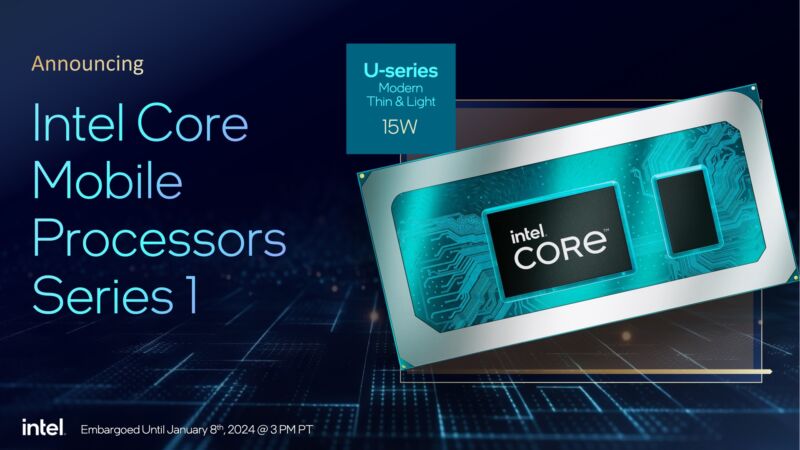
Enlarge / Intel's Core chips are here, and they have dropped the i and the 14th-generation branding. But unlike the Core Ultra, they are fundamentally "14th-generation" processors. (credit: Intel)
Intel usually uses CES to fill out the processor lineups that it launched late the year before, and that hasn't changed this year. The company has announced a full range of 14th-generation Core desktop CPUs, some new 14th-generation Core CPUs for high-end gaming and workstation laptops, and the first non-Ultra chips to bear the new "Core 3/5/7" branding that sheds the generational branding entirely. We'll go over the updates shortly.
But my main takeaway, as a long-time observer of processor branding, is that Intel had made its new naming system even more confusing for people who actually want to know what kind of processor they're getting.
Intel said in October that it was sticking with the 14th-generation branding for its new desktop CPUs because they were so similar to the 13th-generation chips (they all use the same underlying Raptor Lake architecture, itself a minor revision of the 12th-gen Alder Lake). It makes some degree of sense that it's being extended to the HX-series laptop chips, because these have always been desktop silicon repackaged for laptop use. So far so good.
No comments:
Post a Comment